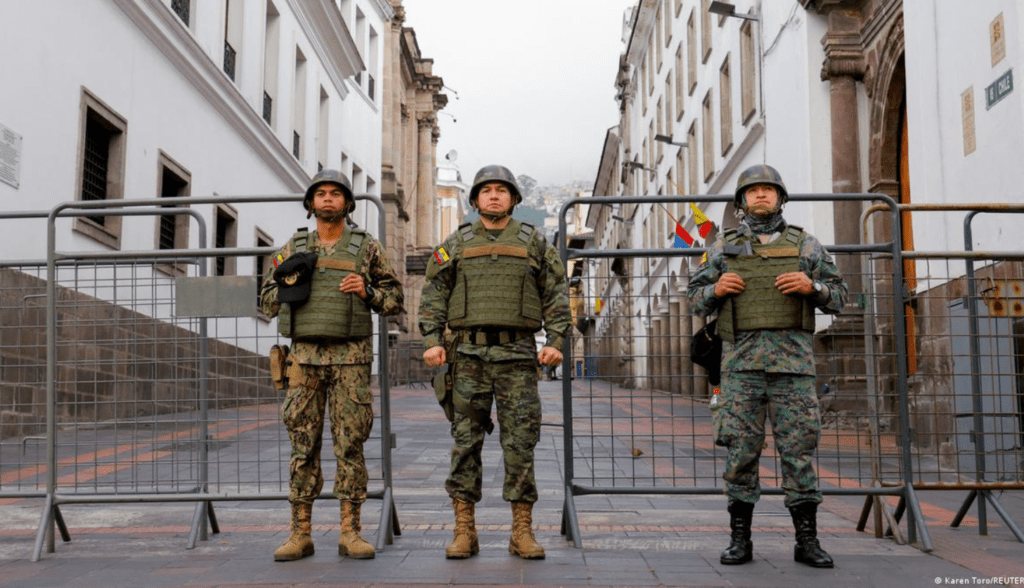Ecuador’s president, Daniel Noboa, declared his country “at war” with drug gangs, following a series of violent incidents, including the hostage-taking of over 130 prison staff and the brief capture of a TV station.
The attacks have resulted in at least 10 deaths, including police officers.
In a radio interview, President Noboa emphasized the gravity of the situation, stating, “We are fighting narco-terrorism,” as he addressed the alarming events, such as car bombs, the murder of police officers, and attempts to seize control of hospitals and a university in Guayaquil.


The violence prompted the president to designate nearly two dozen gangs as terrorist groups and authorized the military to “neutralize” these factions.
A state of emergency was declared, and a two-month plan to build high-security prisons for gang leaders sparked the unrest.
The move was likened to El Salvador’s controversial prison model, leading to criticism and violent reactions.
Ecuador’s prison service reported that 139 guards and staff were held hostage, with unverified videos showing apparent lynchings and killings of prison personnel.


The government responded by closing businesses and offices in major cities and sending children home for online study.
While the situation remains tense, the city of Guayaquil witnessed incidents at hospitals, and roads were eerily quiet, despite the promised military deployment.
Peru declared an emergency along its northern border with Ecuador, and the U.S. expressed concern, with the assistant secretary for Western Hemisphere affairs stating, “The United States stands with the people of Ecuador.”
President Noboa announced plans to deport foreign prisoners, particularly Colombians, to alleviate prison populations and costs.
Despite support from Colombia, which pledged to increase military presence along their shared border, challenges in repatriation procedures exist.
As Ecuador grapples with the crisis, citizens express fear and uncertainty, urging the government to respond decisively to criminal attacks.
The international community closely watches the unfolding events in Ecuador.

